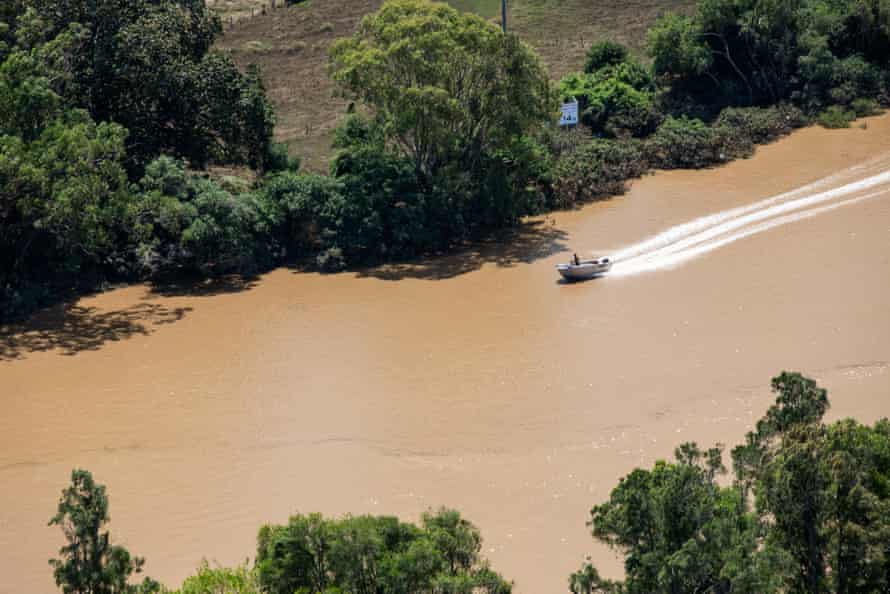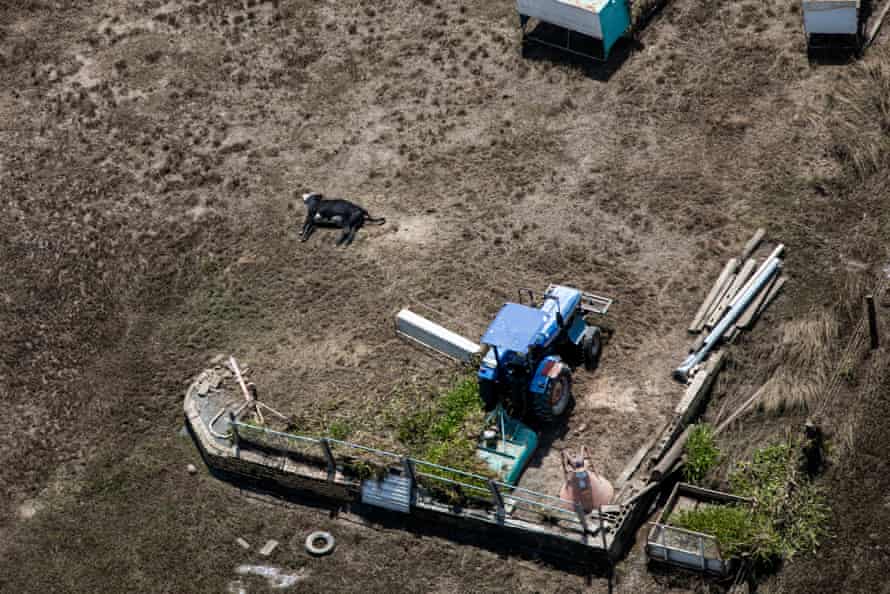March 06, 2022
By Carl Schreck

A Russian governor in Siberia was confronted by angry citizens who accused the government of "deceiving" young men before deploying them as "cannon fodder" in Russia's invasion of Ukraine.
Amateur footage of the testy exchange at a meeting between Sergei Tsivilyov, governor of the Kemerovo region, and locals in the city of Novokuznetsk was posted online as early as March 5.
The website of Tsivilyov's administration makes no mention of the meeting, and his office did not respond to a request for comment. But an analysis by RFE/RL reveals that the confrontation took place at the training base of riot police units, whose officers were killed or captured in combat in Ukraine after Russian President Vladimir Putin launched an invasion on February 24.

Locals Confront Russian Governor Over Sons Being Used 'As Cannon Fodder' In Ukraine War
The meeting in a gymnasium at the base for OMON riot police in Novokuznetsk comes amid the Kremlin's rapidly escalating efforts to control information about its war in Ukraine, including a fast-tracked law that allows for up to 15 years in prison for those convicted of spreading "false news" about the Russian military.
As Tsivilyov addressed the gathering, a woman yelled that everyone was "deceived" about the deployments to Ukraine.
"No one has lied to anyone," Tsivilyov replied.
Another woman in the audience responded: "They were sent as cannon fodder."
As tensions escalated during the discussion, a woman in the audience asked where Governor Tsivilyov's son was.
"My son is studying at a university," he answered.
The general staff of the Ukrainian armed forces said on March 6 that more than 11,000 Russian troops had been killed since Moscow's invasion, which has triggered an unprecedented wave of sanctions targeting the Russian economy and political elite.
The number of dead could not be independently corroborated. The Russian Defense Ministry has released little information about its casualties. In its most recent account, it said on March 2 that 498 of its soldiers have died since the start of the war.
Riot Police Casualties
RFE/RL was unable to independently confirm who was in the audience in the Novokuznetsk meeting with Tsivilyov, or the exact date of the meeting. But comparing the footage with two separate YouTube videos -- including one posted on the official account of the regional branch of Russia's National Guard -- shows clearly that the meeting was held in the gymnasium at the OMON base in the city.
Members of Novokuznetsk OMON units were among the Russian fighters killed or captured by Ukrainian forces in Bucha, a city some 20 kilometers outside Kyiv, on February 28. Footage from the aftermath of the battle shows OMON gear among dead bodies and the wreckage of Russian military vehicles.
Battle footage also shows gear marked as belonging to the Russian National Guard's special rapid-reaction unit (SOBR) from Tsivilyov's region, which is also known as the Kuzbass.
At least two Russian prisoners of war in Ukraine have identified themselves as officers of the Novokuznetsk OMON, though RFE/RL could not confirm what kind of duress they may have been subjected to prior to giving testimony to Ukrainian forces.
One of the prisoners said he and his fellow fighters were told in early February that they were being sent away for a training exercise and ultimately ended up in Belarus before learning they would be invading Ukraine.
His account corresponds to that given to RFE/RL's Russian Service by the friend of another Novokuznetsk OMON officer who went missing in Ukraine.
"They told everyone that they were being sent for a training exercise in Belarus," the friend said on condition of anonymity, citing fears of facing treason charges. "The last time I talked to him was on the eve of the invasion. He sent me a video saying they'd forced them to take the plates of their vehicles and turn over their phones. That's the last I heard from him."

The friend cited survivors of the battle as saying that the Novokuznetsk OMON officer who'd sent the video had died on "that bridge" -- likely a reference to a bridge destroyed in the Bucha battle.
"The commanders are silent and don't say anything. And the guys don't like to talk much either if they call their loved ones, because it's a state secret and no one wants to go to jail," the friend said.
"Everyone is scared, and nobody understands anything."
'You Mean When Everyone Dies?'
Tsivilyov told the audience at the Novokuznetsk gymnasium that the Russian government has rightly kept details about its invasion of Ukraine -- which the Kremlin insists on calling a "special military operation" and falsely claims has not targeted civilian infrastructure -- tightly under wraps.
Live Briefing: Russia Invades UkraineCheck out RFE/RL's live briefing on Russia's unprovoked invasion of Ukraine and how Kyiv is fighting and the West is reacting. The briefing presents the latest developments and analysis, updated throughout the day.
Told by members of the audience that "our boys" were unprepared to carry out an invasion and "didn't know their objective," Tsivilyov said:
"Look, you can shout and blame everyone right now, but I think that, while a military operation is in process, one shouldn't make any conclusions."
"We shouldn't criticize. When it ends, and it will end soon," Tsivilyov added before a woman interjected: "[You mean] when everyone dies?"
In an apparent effort to ease the audience's concerns, Tsivilyov likened the Kremlin's approach to the Ukraine invasion to the Soviet Union's bloody 1979-1989 war in Afghanistan that helped set the stage for the Soviet collapse.
"It was officially stated that we had declared war, and the first who entered Afghanistan didn't know where they were going," Tsivilyov said. "They found out when they already entered.”
"By the way, there are still guys alive from that group," he added about the war that Soviet officials reckoned killed an estimated 15,000 Soviet troops and millions of Afghans.
With reporting by Siberia.
Battleship Potemkin (Russian: Бронено́сец «Потёмкин», Bronenosets Potyomkin), sometimes rendered as Battleship Potyomkin, is a 1925 Soviet silent drama film produced by Mosfilm. Directed and co-written by Sergei Eisenstein, it presents a dramatization of the mutiny that occurred in 1905 when the crew of the Russian battleship Potemkin rebelled against its officers.
Russian marines ‘MUTINY on warship and refuse to fight in Ukraine’ fuelling hopes of anti-Putin unrest, reports claim
Anthony Blair
Mar 1 2022
RUSSIAN marines "mutinied" onboard Vladimir Putin's warships and refused to attack a Ukrainian port, reports claimed today.
A fleet was poised to begin a beach assault on strategic gateway Odessa, but the crack troops are said to have defied orders and steamed back to Russia instead.

Russian troops reportedly mutinied on board Putin's warships in the Black Sea

Ukrainian media claims a riot broke out onboard before a planned beach assault

A Russian fleet was said to be preparing to shell port city Odessa and land troops
Ukrainian media claims a "riot" broke out on the warships, based in nearby Crimea.
At the same time, a number of Russian helicopters and drones were flying over Luzanivka beach, preparing for landing.
The beach, just north of Odessa in southern Ukraine, was defended with mines and anti-tank hedgehogs.
Just before an all-out amphibious assault was due, the Russians radioed Ukrainian defenders to say the attack was off, it is claimed.
They are reported to have them to hold fire and allow the fleet to leave the bay unharmed.
The alleged mutiny echoes the famous rebellion by the crew of the battleship Potemkin in the same area in 1905.

FIGHT FOR UKRAINE
Putin demands Ukraine give up regions after Russians pushed out of city

COLD-BLOODED MURDER
Mum, son & girl, 8, killed as merciless Russians shell fleeing families
Retired Ukrainian diplomat Olexander Scherba, sharing the news on Twitter, wrote: "Last night a large group of Russian warships was about to launch landing on Odesa beaches.
"They approached the coast. Russia was about to shell the beach. Ukraine was about to shoot back when they suddenly withdrew.
"Reports that marines from Crimea refused to attack Odesa."
The mutinous Russians were marines from the 810th Brigade, according to Russian opposition politician Ilya Ponomarev.
He was the only member of Russia's Duma to vote against the 2014 annexation of Crimea.
He wrote on Facebook: "Ukrainian Air Force and other defenders of Odesa were preparing to give a decisive fight back to the opponent, but at the very last moment the Russians came in contact and asked to give them the opportunity to leave the Gulf.
"According to our data, there was a real rebellion on Russian ships; Russian men refused to follow the order and storm the coast of the Slavic Russian-language city."
Speaking directly to his country's armed forces, he added: "Russian soldiers, take an example from your comrades!"
Crimea was annexed by Putin's paratroopers in 2014 but is still internationally recognised as part of Ukraine.
In June 1905, the crew onboard the Russian imperial warship Potemkin mutinied against their officers during the same year's popular uprising.
They docked in Odessa after seizing control during a voyage in the Black Sea, and later sought refuge in Romania.
The mutiny, often seen as the first step leading to the 1917 Russian Revolution, was later the subject of the celebrated 1925 Soviet film Battleship Potemkin.
Russian soldiers, take an example from your comrades!Ilya PonomarevRussian Opposition Politician
Several unconfirmed reports in recent days claim Russian troops are leaving their posts because they do not want to fight their Ukrainian "brothers".
On Monday, footage appeared to show a Russian T-72B tank "abandoned with fuel and in fully working condition".
Some Russian troops are alleged to have stolen cars from Ukrainians to escape, while others have turned over their equipment to the enemy and refused to fight.
ITV's Dan Rivers said a Ukrainian soldier told him: "There are small groups of Russians still inside [Kharkiv], but they are totally demoralised and are now stealing cars from civilians to try and escape."
Taras Kuzio, a research fellow at the Henry Jackson Society, crediting a Ukrainian news network, tweeted: "5,000 Russian soldiers in staging area in Russia, north of Kharkiv have revolted and refusing to attack Ukraine."
He added: "Earlier report from front lines around Crimea is half of Russian soldiers turned over equipment to the Ukrainians, again refusing to fight."
Meanwhile, a Belarusian military chief has ordered his troops not to fight in Ukraine, declaring it is "not our war", in a direct challenge to Vladimir Putin and his ally, Belarus' president Alexander Lukashenko.
Retired lieutenant colonel Sakhashchyk Valery Stepanovych said the conflict "may have catastrophic consequences for our country".
He added: "Likely, many will not return home alive, the Russian army with massive military experience has been in the waters for three days now - casualties number in the thousands."
Stepanovych call on his "brothers" to "not participate in this dirty deed" and told them this is "not our war".
His comments came as Ukraine said a column of Belarusian tanks and troops had joined Russia's invasion today.
Around 5,700 Russian troops have been killed so far in the war, Ukraine claims, with 198 tanks, 29 aircraft, and 29 helicopters destroyed.
The Russian government has said it will pay the families of fallen Russian soldiers 11,000 Rubles (£81).
It comes as Russia faces accusations of war crimes after allegedly committing indiscriminate carpet-bombing on Ukraine's second city Kharkiv.
In a message to his people on a Facebook video, Ukraine's President Volodymyr Zelensky said the bombing was "terror against Kharkiv, terror against Ukraine. There was no military target on the square".
Describing the attack on an administrative building in central Kharkiv as "outright, undisguised terror," he added: "No one will forgive. No one will forget. This strike on Kharkiv is a war crime."
He said Kyiv and Kharkiv are Russia's "most important targets" and said Putin's forces would use terror to "break" the country's resistance.
🔵 Read our Russia - Ukraine live blog for the very latest updates
At least 10 more people have been killed and 35 wounded in rocket strikes in central Kharkiv today, home to 1.5 million people.
A huge Russian military convoy is advancing on Kyiv as the conflict enters its sixth day, with armoured vehicles, tanks, and other military equipment stretching some 40 miles, according to the latest satellite images.
US senator Chris Murphy has warned that Putin's troops are preparing for a "long and bloody" siege of Ukraine's capital.
Today, Russia's defence ministry has issued a chilling warning to residents in Kyiv, telling them to leave their homes ahead of a planned further bombardment.
In a sinister statement published by Russian state news agency Tass, it said Putin's forces are preparing to launch "high-precision strikes" against targets in the city.
"We urge Ukrainian citizens involved by Ukrainian nationalists in provocations against Russia, as well as Kyiv residents living near relay stations, to leave their homes," the statement read.
But experts have questioned how long Russia can continue to fight an unpopular and costly war.
Russian individuals and businesses have been slapped with sanctions, their sports teams have been kicked out of international competitions, and the Russian Ruble has plummeted to a historic low.
At the same time, the International Criminal Court has announced it will investigate Russia's alleged war crimes in Ukraine.
And following the mass closure of Russia's air space, the country is facing heavy restrictions on sea travel as well.
On Sunday, Turkey labelled Russia's invasion as a war, and hinted at limiting the movement of warships through the Turkish Straits and into the Black Sea, a strategic route to Ukraine.
Some 660,000 refugees have already fled Ukraine since the start of the war, including 150,000 over the past day, in what is feared to be the biggest movement of people since the Second World War.
A second round of peace talks between Russia and Ukraine has been scheduled for Wednesday, according to Russian state media, after Monday's near the Belarus-Ukraine border ended without a breakthrough.

Ordinary Ukrainians have held up a Russian military convoy in MelitopolCredit: East2west News

Heavy shelling has continued into a sixth day in UkraineCredit: Alamy

Odesa is a strategically important port city close to the disputed Crimea territoryCredit: Avalon.red

:quality(70)/cloudfront-eu-central-1.images.arcpublishing.com/thenational/SDZGGZPHFP7AGILOS4Y473XPVU.jpg)
:quality(70)/cloudfront-eu-central-1.images.arcpublishing.com/thenational/HJVCQ72EZFEMPAFYLWBZPZP2W4.jpg)
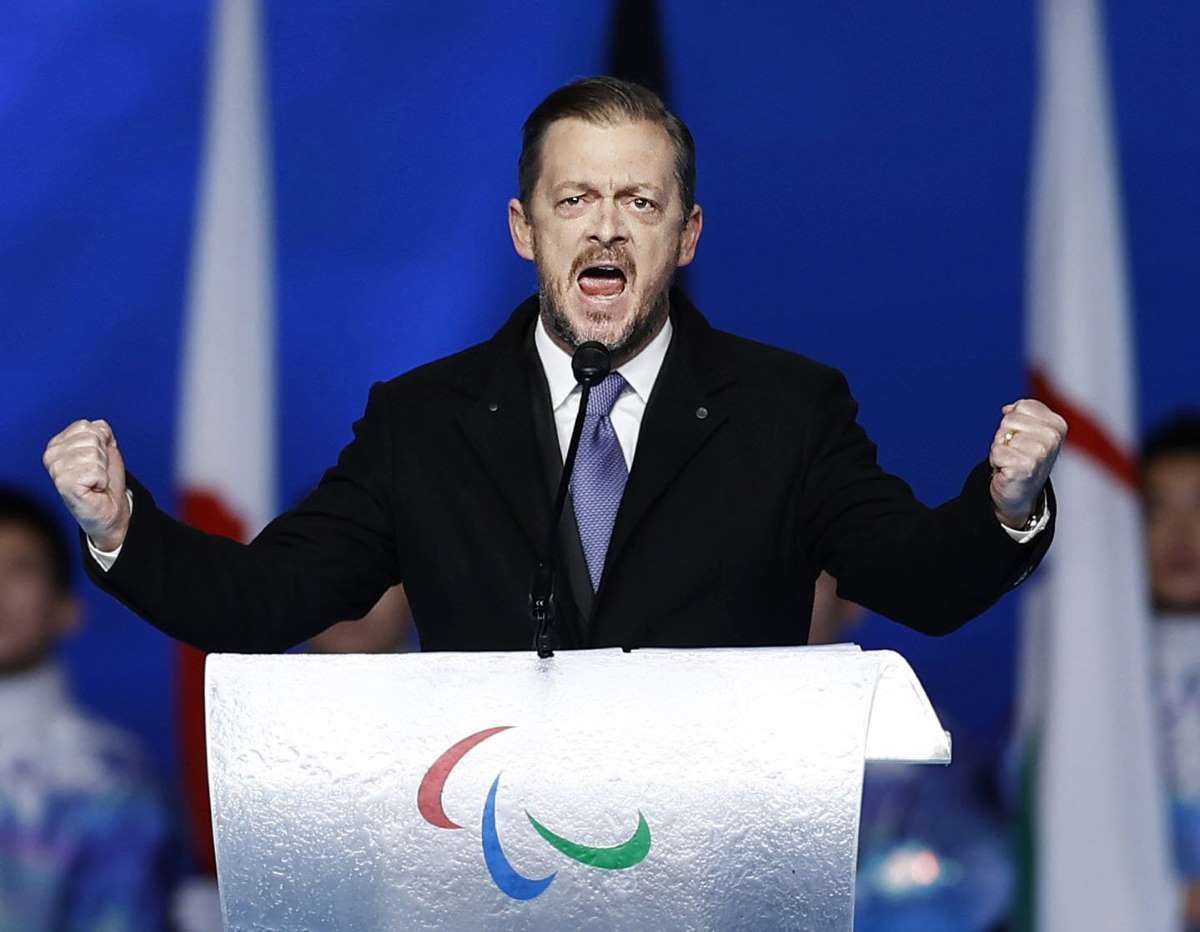
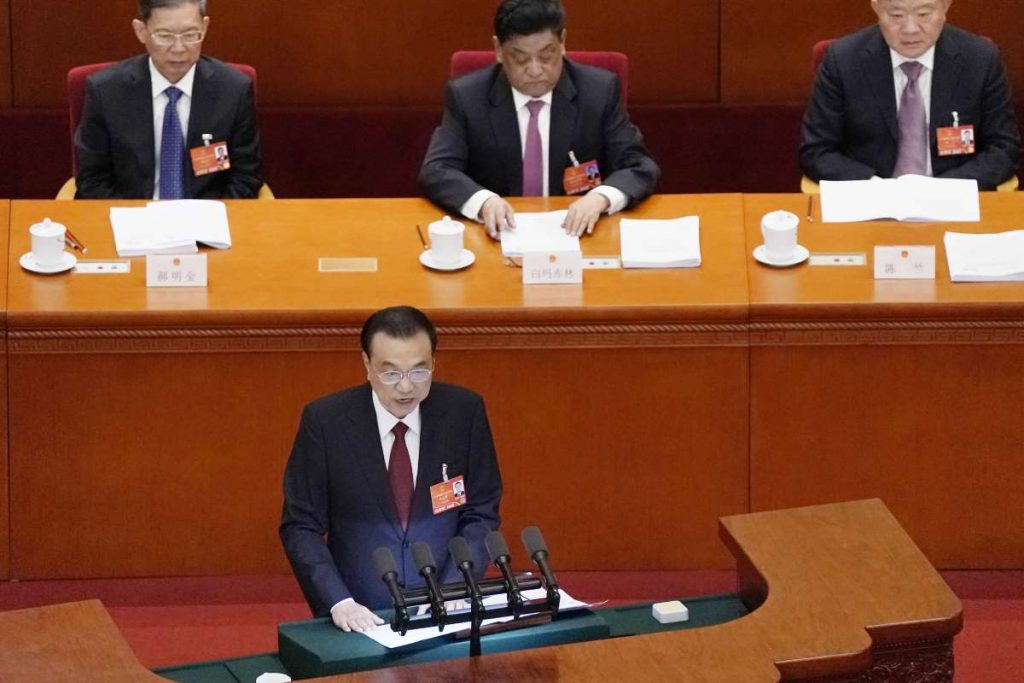

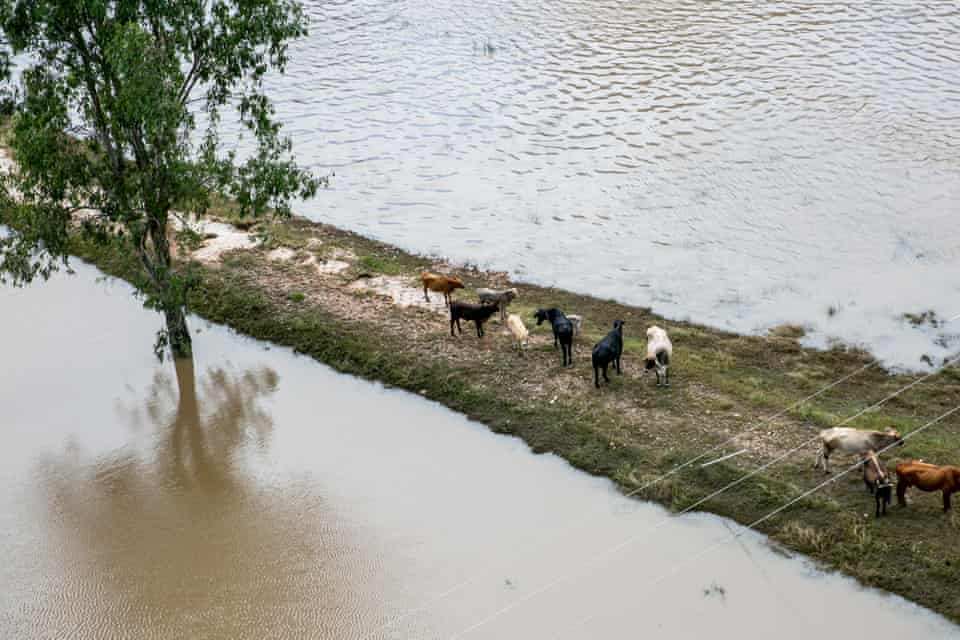
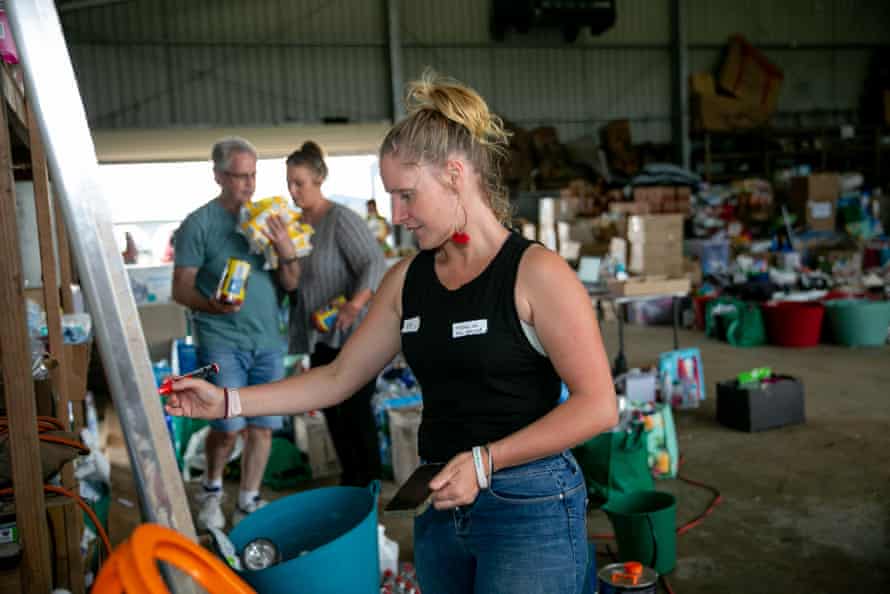 Ash Jones has been working long hours as a volunteer air traffic controller and donation coordinator. Photograph: Yaya Stempler/The Guardian
Ash Jones has been working long hours as a volunteer air traffic controller and donation coordinator. Photograph: Yaya Stempler/The Guardian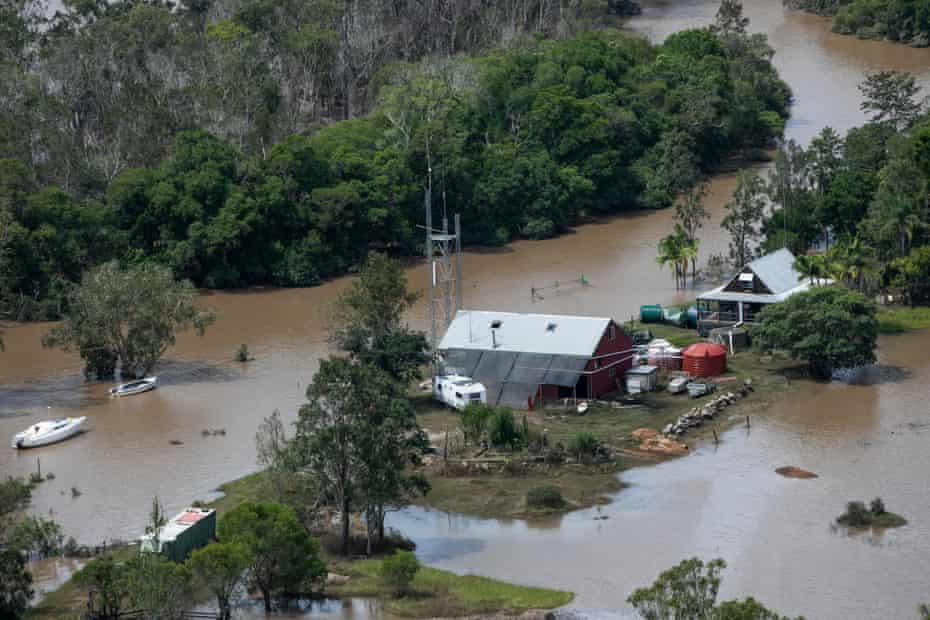
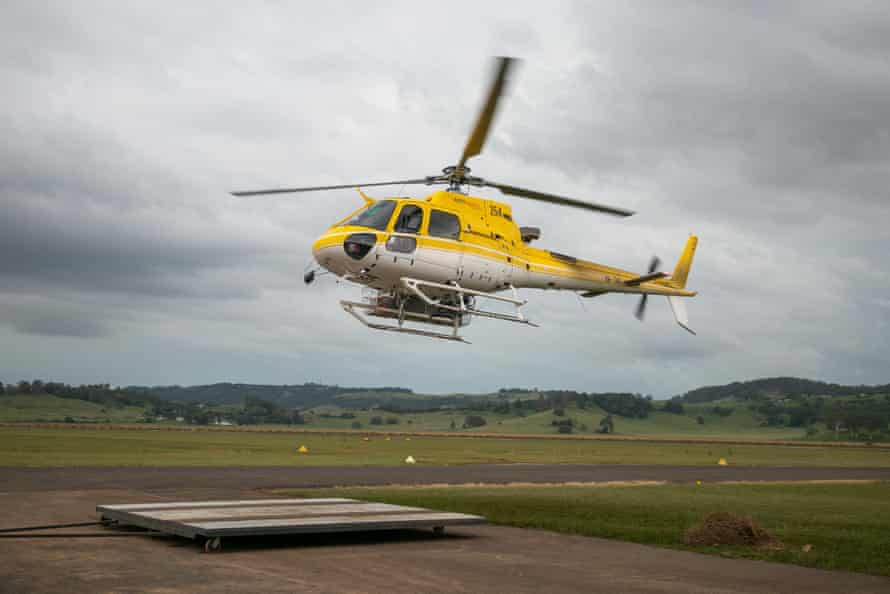
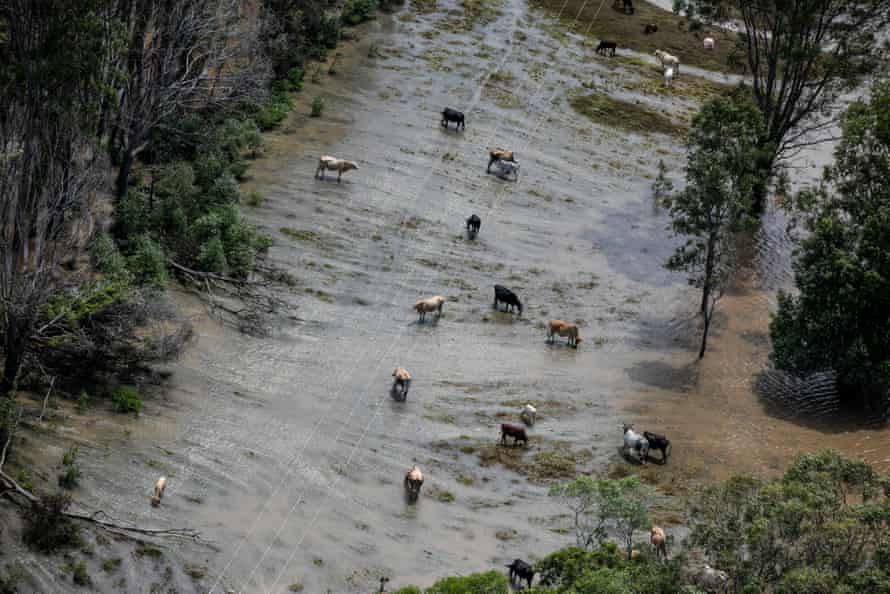
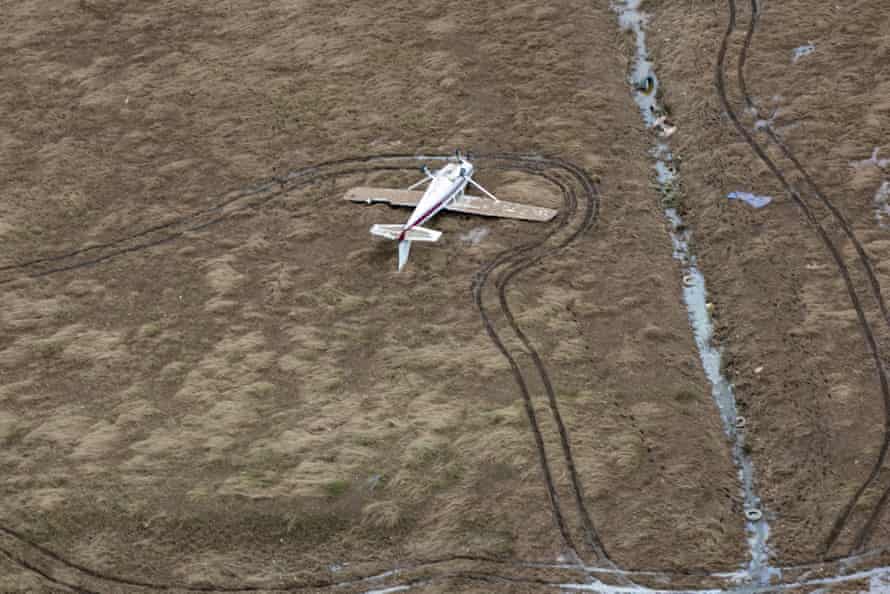 Many people requiring rescue thought they could last on their own in their properties until flood waters receded, Jess Barnes says. Photograph: Yaya Stempler/The Guardian
Many people requiring rescue thought they could last on their own in their properties until flood waters receded, Jess Barnes says. Photograph: Yaya Stempler/The Guardian